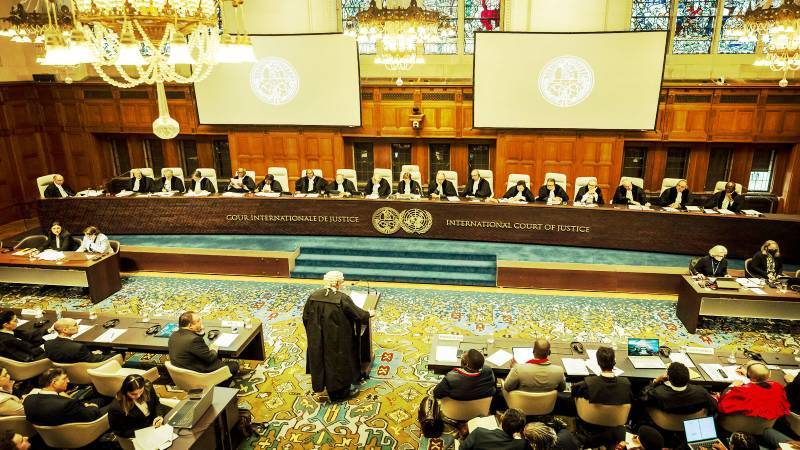
The International Court of Justice (ICJ) has ruled that Israel was illegally occupying Palestinian Territories and called on it to stop expanding settlements in the West Bank and East Jerusalem.
,Palestinian Authority President Mahmoud Abbas hailed the decision from the ICJ while Israeli Prime Minister Benjamin Netanyahu rejected it, maintaining that it cannot alter the "legality of Israeli settlement in all the territories of our homeland".
The 15-judge panel of the global court issued an 83-page verdict, which was read out by the court's President Nawaf Salam, noting that Israel was abusing its status as the occupying power, which renders its "presence in the occupied Palestinian territory unlawful." Israel's continued presence in the Palestinian Territories was "illegal" and should be ended as "rapidly as possible".
It further asserted that Israel could not claim sovereignty in the Palestinian Territories and was impeding Palestinians' right to self-determination.
The court went beyond and presented a wide list of Israeli policies, including the building and expansion of Israeli settlements in the West Bank and East Jerusalem, the use of the area's natural resources, the annexation and imposition of permanent control over lands and discriminatory policies against Palestinians, all of which it said violated international law.
Israel claimed that the global court's proceedings could undermine the peace process, which has been stagnant for more than a decade and that it fails to address Israeli security concerns.
It also comes at a time when talks surrounding a ceasefire in Gaza, which has been the frontline of the latest Israeli war for the past ten months, hangs by a thread.
Hamas, which has been fighting for the freedom of the battered Gaza Strip from Israeli occupation, called for "immediate" international action to end Israel's occupation of the Palestinian Territories after the ICJ issued its ruling.
In a statement, Hamas said the ruling puts "the international system before the imperative of immediate action to end the occupation".
Abbas' office said Israel must be compelled to implement the top court's decision.
Netanyahu, however, washed over Israeli occupation, asserting that East Jerusalem and West Bank were part of the 'historic homeland' of Israel.
He, however, went on to conflate the idea of a homeland with occupation, calling the ICJ decision 'false'.
"The Jewish people are not conquerors in their own land – not in our eternal capital Jerusalem and not in the land of our ancestors in Judea and Samaria," he said in a post on 'X' (formerly known as Twitter). "No false decision in The Hague will distort this historical truth, and likewise, the legality of Israeli settlement in all the territories of our homeland cannot be contested."
Israel captured the West Bank, East Jerusalem and the Gaza Strip in the 1967 Mideast war. The Palestinians seek all three areas for an independent state.
Israel considers the West Bank to be disputed territory, whose future should be decided in negotiations, while it has moved population there in settlements to solidify its hold. It has annexed East Jerusalem in a move that is not internationally recognized. It withdrew from Gaza in 2005 but maintained a blockade of the territory after Hamas took power there in 2007. The international community generally considers all three areas to be occupied territory.
Israel says the barrier is a security measure. Palestinians say the structure amounts to a massive land grab because it frequently dips into the West Bank.
Israel has built well over 100 settlements, according to the anti-settlement monitoring group Peace Now. The West Bank settler population has grown by more than 15% in the past five years to more than 500,000 Israelis, according to a pro-settler group.
Israel also has annexed East Jerusalem and considers the entire city to be its capital. An additional 200,000 Israelis live in settlements built in East Jerusalem that Israel considers to be neighbourhoods of its capital. Palestinian residents of the city face systematic discrimination, making it difficult for them to build new homes or expand existing ones.
The international community considers all settlements after 1967 to be illegal or obstacles to peace since they are built on lands sought by the Palestinians for their state.

